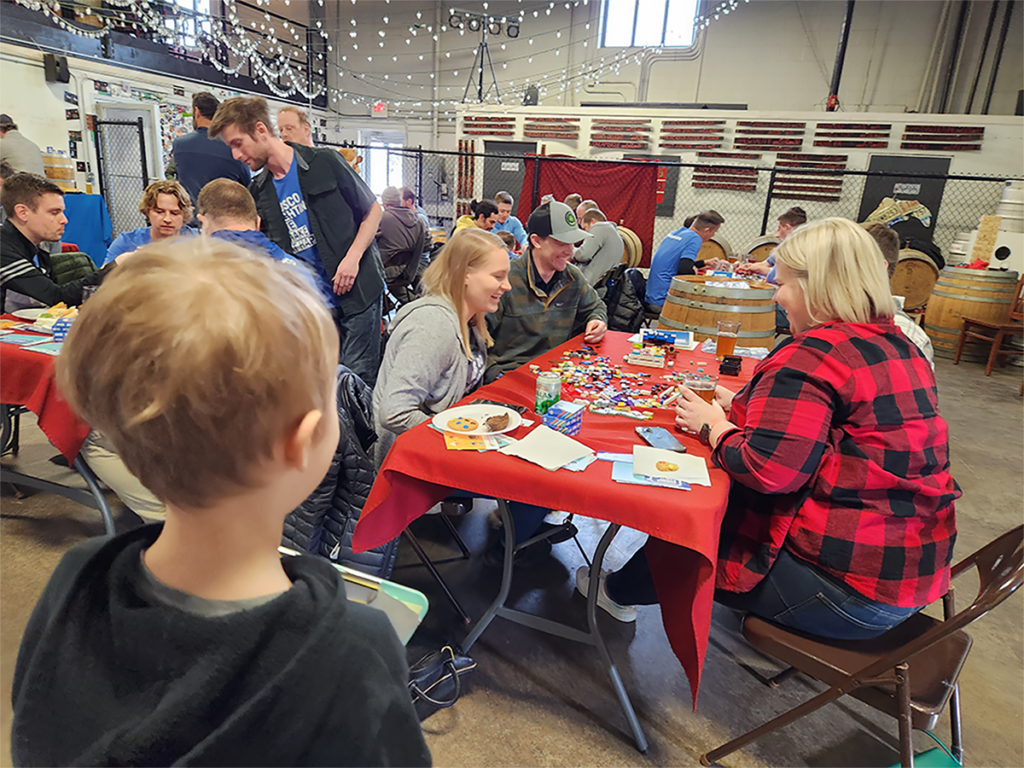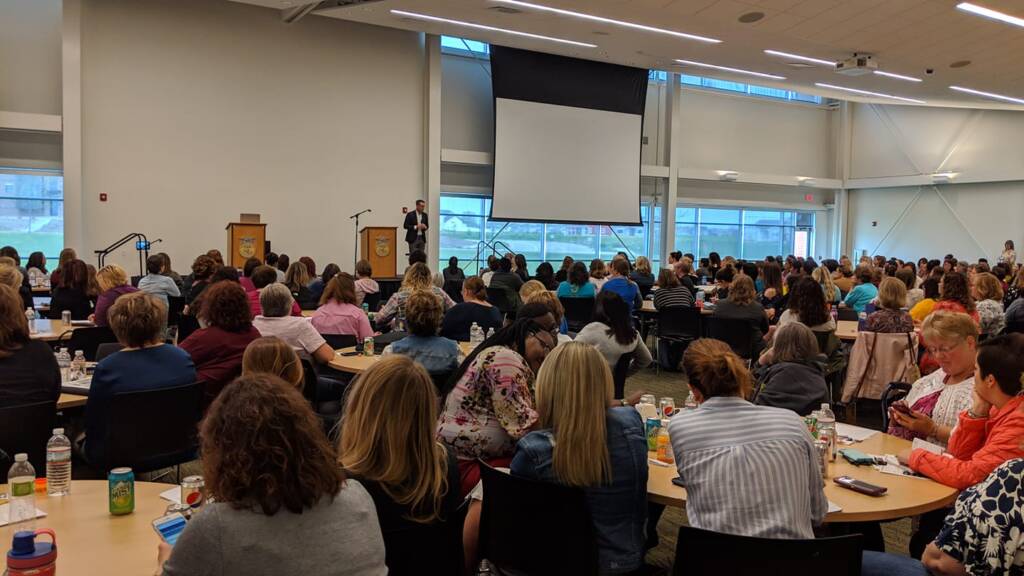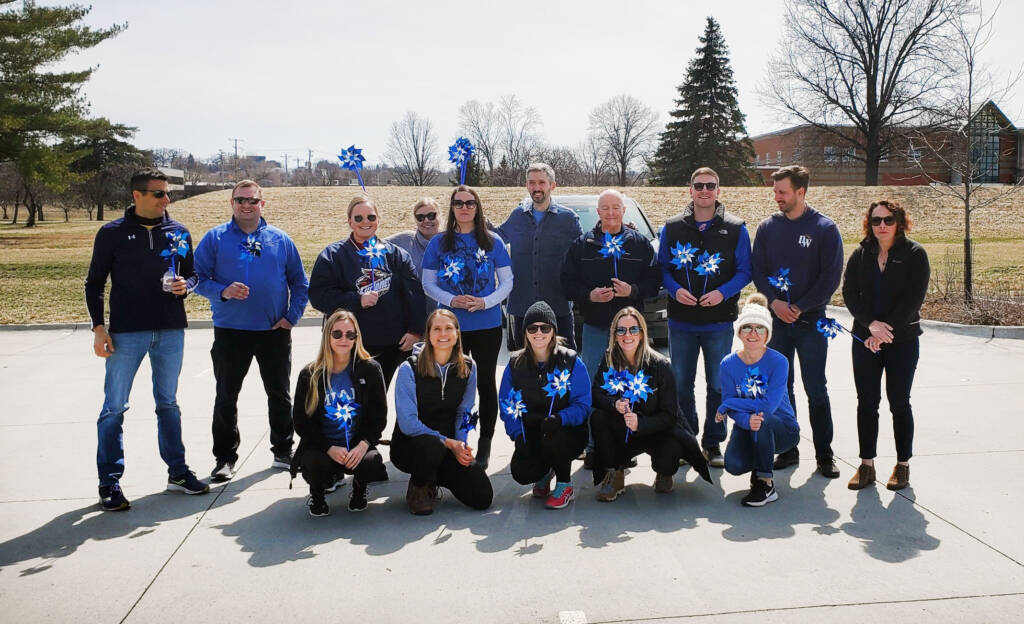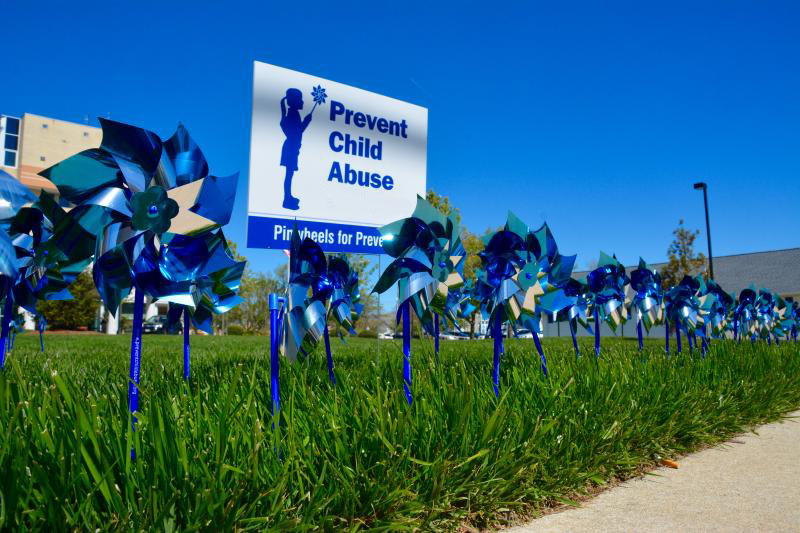Prevent Child Abuse Iowa strives to enable prevention efforts throughout Iowa in order to deliver safe and happy childhoods. They give their communities the tools they need in order to stop abuse from happening. Hy-Vee supports this organization through the Red “My Heart” Reusable Bag Program.
Tell us about Prevent Child Abuse Iowa.
Prevent Child Abuse Iowa (PCA) began as a grassroots effort in 1975 when advocates from health care, law enforcement, social services, public policy and other disciplines came together to raise awareness of child abuse in Iowa. Back then, many people weren’t aware of the issues regarding child safety in their communities.
We are an almost 50-year-old chapter and affiliate of Prevent Child Abuse America. PCA Iowa and its partners have made huge strides in creating safe, nurturing environments for Iowa’s most vulnerable populations. Our mission is to empower community prevention efforts to provide safe and happy childhoods through collaboration with diverse partners that lead to a better future for Iowa.
PCA Iowa and its partners have made huge strides in creating safe, nurturing environments for Iowa’s most vulnerable populations.
What services do you provide to the community?
We are not a direct service provider. PCA Iowa helps the helpers throughout the entire state of Iowa. Our work is primarily through several councils based in Iowa’s counties. They receive grants to provide prevention messaging and advocacy awareness. We manage these grants that are issued by the state. We do the evaluation, provide technical assistance and review their expenses. The councils we work with can be as informal as 100% volunteer or, in some cases, be part of the public health department of their county. These grants are for whatever these organizations regard as being helpful, such as getting prevention messaging out or ensuring there are parent and single-parent support groups, among many other needs.
PCA Iowa helps the helpers throughout the entire state of Iowa.
In several counties in Iowa, we have an adolescent pregnancy prevention program, which is also funded through a state grant. This program targets messaging and provides healthy relationships and comprehensive prevention information.
We also have a program called Connections Matter, based on creating awareness of the effects of trauma, particularly adverse childhood experiences. This program model is designed for diverse community use and to help people be comfortable talking about a topic that can be challenging. This helps develop ways to overcome stigma and recognize how earlier abuse and other traumatic events might affect someone’s well-being as an adult and, ultimately, that community’s well-being.

Prevent Child Abuse Iowa helps people recognize how things can affect us and how things that happened as children, good or bad, can ultimately shape our character and interactions as adults.
What sets you apart from other nonprofits in your community?
Our organization advocates prevention, which sets us apart from other programs focused on providing for victims. We are comprehensively focused on prevention so that abuse doesn’t occur in the first place. Babies, infants and toddlers in the home are certainly a large part of our targeted prevention efforts. But even into adolescence and high school years, interventions are helpful in preventing abuse from ever happening.
Prevent Child Abuse Iowa addresses the prevention of physical, sexual and emotional abuse as well as negligence. And negligence can be everything from undernourishment to not being available when a child has questions, is learning or needs that parental support.
Tell us a story that illustrates the good work of your organization.
The communities and the connections we create are what matter. Our work is appreciated and heard through the messages and training that are carried out. For instance, we have thought-provoking graphics listing ten things a child should hear every day, ten things a parent or caregiver should hear every day and other information.
Through curriculum and simple messages that take little interpretation, we produce information people can put on their refrigerators that will eventually get into local newspapers or in announcements on the radio.
Prevention is essential, but it is difficult to measure the impact because we’re challenged in trying to quantify what didn’t happen as opposed to what did. It is like rail safety if there is a train wreck; what caused it can be measured, but all the lives that are safe from the things that prevent a train from going off the rails are unmeasurable. With prevention, it is the idea that we know from the field that the messages are getting out; people are hearing and seeing them. The repetition of those messages has a positive impact.
Prevention is essential, but it is difficult to measure the impact because we’re challenged in trying to quantify what didn’t happen as opposed to what did.
What is your most outstanding achievement or contribution to the community?
PCA Iowa hosts a prevention conference every year with people from all over the state. This event is a way to reinforce and support our connection with our regular councils and groups, and it also helps us reach out to other professions and communities.

Our attendees include many home visitors, folks involved with the foster care system, people in the juvenile justice system, teachers, nurses and social workers, among others. All participate in the conference because it’s a great way to connect, share best practices and receive professional development. Our conference happens every May, and it’s something that people look forward to attending and where advocates are highlighted, praised and lifted up for their excellent work in this field. This event is something we are certainly proud of producing.
What do you want people to know about your organization?
We say this repeatedly: Child abuse is 100% preventable. People need to know we’re a resource in their communities through local councils and program groups.
We say this repeatedly: Child abuse is 100% preventable.
We have resources on our website, but we really reach people through the work, support and technical assistance that we provide locally. PCA Iowa is not just in cities; our support is throughout Iowa. Abuse is not tied to any particular type of city or area, and it affects any income level, race or religion. Unfortunately, it’s everywhere, and prevention also needs to be there.
How are you using the funds you’ve received from the Hy-Vee “My Heart” Reusable Bag Program?
One of the significant impacts of the Hy-Vee Reusable Bag Program was an increase in awareness and donors. The funds earned undoubtedly contributed to our overall work in measuring prevention effectiveness.

Prevent Child Abuse Iowa is hugely grateful to Hy-Vee for this support and continued support of our conference and for believing in what we do. We even thanked the store manager, where we were recently selected and offered our pinwheels, the symbol for Prevent Child Abuse America.
Is there anything you would like to add?
There are straightforward ways to help prevent child abuse that everybody can do. For example, if you see a parent shopping with a child throwing things on the floor, a smile or an understanding look for that parent can make a big difference. That parent is most likely so embarrassed, and they probably want to make themselves or their child disappear. That comforting, reassuring look can help someone know it’s all okay.
People can take many small and simple steps to ease stress levels—having a little conversation with a child while they’re waiting in line or offering to babysit when a friend or relative has an appointment, for example. Impactful ways to make a difference include voting to support creating parks in your community or adding to your local school’s recreation facilities.
Stress is the number one cause of child abuse. PCA Iowa talks a lot about fun. The more fun activities there are for children and families, the fewer child abuse cases will occur in the community.

Tim Wilson is the Development & Events Manager of Prevent Child Abuse Iowa.
Published March 30, 2023.

